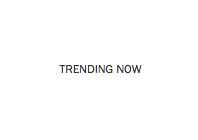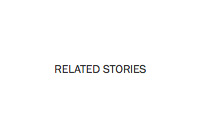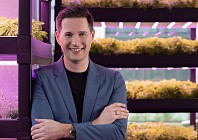Waiting to speak with Brigitte Taittinger is somewhat unnerving. This is a woman who has stepped out from the privileges of her famous lineage (her grandfather, Pierre-Charles Taittinger, is the founder of the Taittinger champagne house) to ascend to the upper echelons of the business world, where she sits today as president of luxury fragrance house Annick Goutal Parfums, brainchild of the late French model Annick Goutal.
She also happens to be married to high-profile French politician Jean-Pierre Jouyet, so I am expecting a formal scenario when I go to meet her during a recent visit to Dubai.
But Brigitte proves me wrong as soon as we sit down and she flashes a genuine smile that is the introduction to a fascinating conversation; she is open, warm and unbelievably charming. Here she gives us a glimpse into her luxurious life, as well as a new perspective on the world, explored through the sense of smell.
What are your leading fragrance markets by region?
We are a French house of perfume, so our strongest market is the French market. Our second is America, then Europe. Interestingly, the Asian market is more and more important, most surprisingly Japan. The Japanese don’t like perfumes; they love luxury, skincare and makeup, but perfume wasn’t a part of the culture. They love fresh water; they love smelling like nothing. Fortunately, we can produce the fresh water scent for them, or the very strong scent for our other markets.
Do you tailor-make fragrances for specific parts of the world?
No. But what I can say is that some smells are very successful in certain markets. I have a bestseller, Gardenia Passion, which is only a bestseller in the United States. American women love the gardenia, which is a common flower there. Another example is the rose. When you go to Japan, they love the beauty of the rose, but they don’t like heavy fragrances. We have two rose scents. One is Rose Splendide, and our leading market for this scent is Hong Kong, because Hong Kong is very humid and they love a very fresh and light rose. But in France and Paris, they love our Rose Absolue. It’s a mix of six roses – roses of Turkey, Damascus. It’s a strong rose fragrance.
Have you experimented with Middle Eastern scents like oud?
I am going to. Everyone is saying oud is an extraordinary scent that is very popular in the Middle East. I have to go to Paris and bring a sample fragrance to my team. I want them to interpret this new ingredient, but not just to copy what others are doing. It’s not interesting to copy. For the consumer it is interesting to let them discover it for themselves.
Why do people associate perfumes with luxury – is this a practice that you see everywhere in the world?
I think that when you launch a fragrance it has to have universal appeal. That said, it doesn’t always work that way. The most difficult situation is when you arrive in a market and they don’t wear perfume. In lots of places in Europe they don’t use perfume. Luxury is a product, but also a service. A woman has to take time to come back home and try the scent for her husband or her boyfriend. It is the tradition of the ritual and it takes time.
Does a scent’s exclusivity also make it luxurious?
You go to Champs Elysees in Paris and everybody smells the same, but if you have a lot of personality you don’t want to smell the same as everyone else. Our first customers were journalists and stars, because stars for instance want something different. That is something very special. The definition of luxury for me is product first, then service, and then distribution and the quality of the distribution. It’s difficult to be luxury and to be distributed everywhere. Our bottle is very expensive and is made by hand. This is costly, but it shows the quality of the brand.
Your grandfather Pierre-Charles Taittinger founded Taittinger champagne. Can you draw any parallels between champagne and perfume?
Yes. It’s the same story. With champagne you are building a juice, just like perfume. Every year my father would mix the juice. Annick Goutal was very close to my father. Every Monday morning, my father and his team would taste the champagnes. You need the nose for both. You have to close your eyes. I remember one summer seeing Annick and my father tasting champagne. They closed their eyes and tasted, then they would compare the notes.
You studied political science in university, and your husband is in politics. Do you see yourself going into politics at some point?
I love politics and my husband is in politics. He is the best friend of Francois Hollande, who is in the running for president of France. My uncle was in politics, and my grandfather. I don’t think I would go into politics myself, firstly because my husband does it, and it takes a lot of time. In the evening I am at home, as well as on weekends, but with politics it is work all the time. I have six children.
How do you fit your career around your family – do you have certain rules?
My one rule is that we have Sunday lunch at home with the whole family every week.
Would you call yourself a workaholic?
No, because when I come back home my family comes first. My 13-year-old doesn’t care about politics or Annick Goutal. She has problems she wants to talk about. It’s all about finding the right balance.
What obstacles have you come up against as a female business leader?
In France there is no problem for women in the beauty industry. It is better than say Korea or Japan. There it is terrible still – it’s a big problem for a team of businessmen to speak with a woman. Just before the meeting my colleague will gently remind me that I should try not to ask too many questions. But after five minutes I forget and I start asking questions.
What advice would you give to young entrepreneurs?
There is always an option for people who are creative. Even if you are not creative, you can build a concept with creative partners. Secondly, don’t be a copy. You always have to create something unique.
How much do you rely on your instincts in business?
I have always trusted my instincts. Before I arrived, Annick Goutal was very frustrated with the owners, and she left in 1988. When I came on board in 1991, I saw that the success of the company depended on Annick Goutal being a part of it, and I convinced her to come back. The owners said this would be a disaster, but I said no, I am going to go with her. And it may be the most important thing I did in my career.
Do you associate any of your scents with memories?
We have a candle, called Noel. Everybody says it reminds them of when they were young and of being at their grandmother’s place for Christmas. Annick always created through memories. One of the last perfumes by Annick was for her husband, and it was the smell of his boat. It was the smell of the sea, and the petrol, and the cabin. It brings back that memory.












